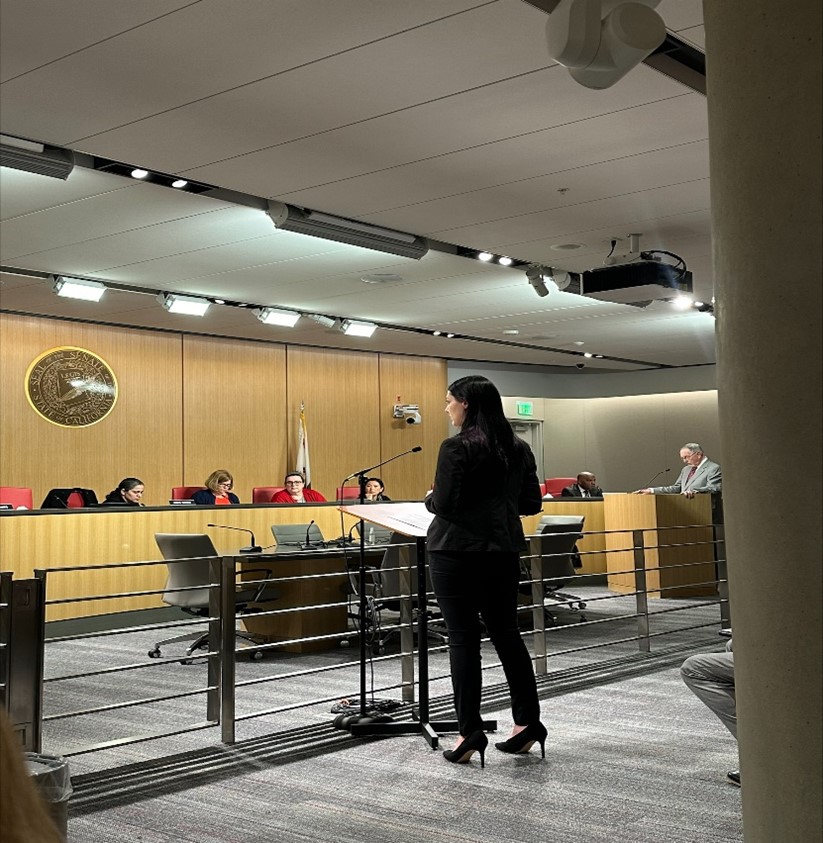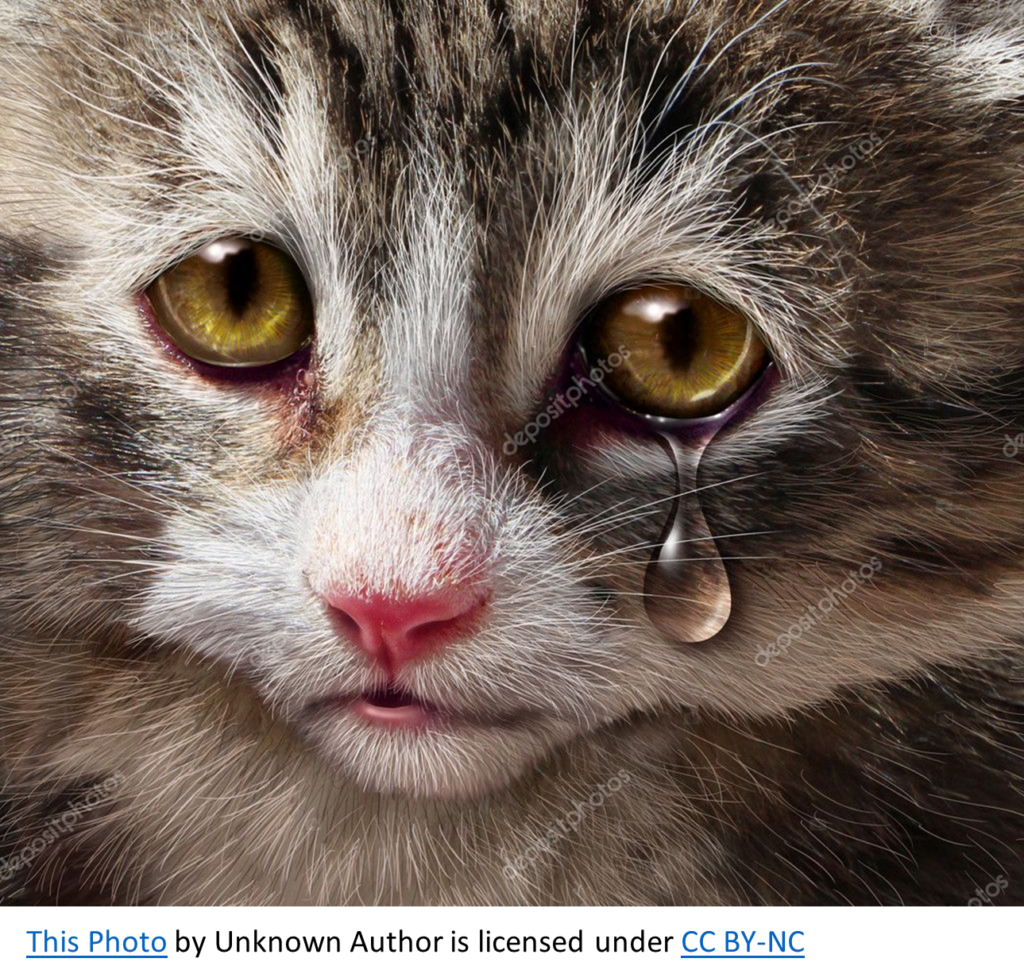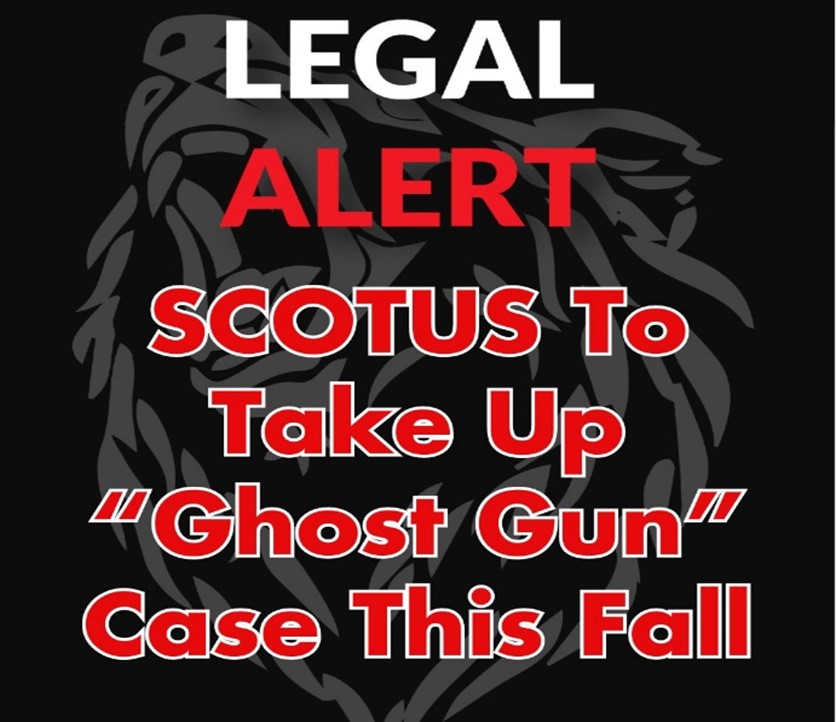Senate Bill 902 and 921

SB 902, as amended, Roth. Firearms: Public Safety

PURPOSE: The purpose of this bill is to create a 10-year prohibition on the possession of firearms for individuals convicted of animal cruelty.
Existing law, subject to exceptions, provides that any person who has been convicted of certain misdemeanors may not, within 10 years of the conviction, own, purchase, receive, possess or have under their custody or control, any firearm and makes a violation of that prohibition punishable as a misdemeanor or a felony.
Existing law, with certain exceptions, makes it a crime to maliciously and intentionally maim, mutilate, torture, wound, or kill a living animal. Existing law, with additional exceptions, makes it a crime to, among other things, overwork, cruelly beat, or overload an animal.
This bill would provide that any person convicted of a misdemeanor violation of the above-described crimes, on or after January 1, 2025, may not, within 10 years of the conviction, access a firearm as described above, and would make a violation of that prohibition a misdemeanor. Because a violation of these provisions would be a crime, and because this bill would expand the application of the crime to a larger class of potential offenders, this bill would impose a state-mandated local program.
This bill would make related findings and declarations.
The California Constitution requires the state to reimburse local agencies and school districts for certain costs mandated by the state. Statutory provisions establish procedures for making that reimbursement.
This bill would provide that no reimbursement is required by this act for a specified reason.
SB 921, as introduced, Roth. Animal Welfare

Existing law makes it a crime to inflict unnecessary cruelty or to abuse an animal in any manner, including, but not limited to, maliciously and intentionally maiming, mutilating, torturing, or wounding an animal.
This bill would additionally make it a crime to otherwise abuse or subject a living animal to needless suffering. The bill would make it a crime for a person to maliciously and intentionally mistreat any animal even if the mistreatment does not cause physical injury. By expanding the scope of a crime, this bill would impose a state-mandated local program.
Existing law requires a person who is convicted of specified crimes, including misdemeanor or felony abuse of an animal, who is granted probation to successfully complete counseling.
This bill would expand that requirement to require a person convicted of an infraction for abusing an animal to complete counseling. The bill would make failure to complete counseling a misdemeanor. By creating a new crime, the bill would impose a state-mandated local program.
The California Constitution requires the state to reimburse local agencies and school districts for certain costs mandated by the state. Statutory provisions establish procedures for making that reimbursement.
This bill would provide that no reimbursement is required by this act for a specified reason.
SB 905: Crimes: Theft from a Vehicle
SB 905, as amended, Wiener. Crimes: Theft from a Vehicle.
| 04/04/24 | Read second time and amended. Re-referred to Com. on APPR. |
| 04/03/24 | From committee: Do pass as amended and re-refer to Com. on APPR. (Ayes 5. Noes 0. Page 3449.) (April 2). |
| 03/18/24 | From committee with author’s amendments. Read second time and amended. Re-referred to Com. on PUB S. |
| 03/12/24 | Set for hearing April 2. |
| 02/14/24 | Referred to Com. on PUB S. |
| 01/05/24 | From printer. May be acted upon on or after February 4. |
| 01/04/24 | Introduced. Read first time. To Com. on RLS. for assignment. To print. |
Existing law defines the crime of burglary to include entering a vehicle when the doors are locked with the intent to commit grand or petit larceny or a felony. Existing law makes the burglary of a vehicle punishable as a misdemeanor or a felony.
This bill would make forcibly entering a vehicle, as defined, with the intent to commit a theft or a felony therein a crime punishable by imprisonment in a county jail for a period not to exceed one year or imprisonment in a county jail for 16 months, or 2 or 3 years. By creating a new crime, this bill would impose a state-mandated local program.
Existing law prohibits the taking of the personal property of another, as specified, prohibits removing any part of a vehicle without the consent of the owner, and prohibits the possession or receipt of stolen property, as specified. A violation of these prohibitions is punishable as either a misdemeanor or a felony.
This bill would make it a crime for a person to unlawfully possess property that was acquired through one or more acts of theft from a vehicle, unlawful entry of a vehicle, burglary of a locked vehicle, or vehicle tampering, if the property is not possessed for personal use and the person has the intent to sell or exchange the property, or the intent to act with another person to sell or exchange the property, and the value of the possessed property exceeds $950. The bill would, for the purpose of determining the value, allow the aggregation of the value of other illegally obtained property possessed by the person within the past ____ years. The bill would make this crime punishable as a misdemeanor or a felony. By creating a new crime, this bill would impose a state-mandated local program.
The California Constitution requires the state to reimburse local agencies and school districts for certain costs mandated by the state. Statutory provisions establish procedures for making that reimbursement.
This bill would provide that no reimbursement is required by this act for a specified reason.
BIG WIN! SB 1160 is DEAD!
SB 1160, as amended, Portantino. Firearms.

The purpose of this bill was to make it an aggravated misdemeanor for a person to openly carry an unloaded handgun when the handgun and unexpended ammunition are in immediate possession of the person and the person is not listed with the Department of Justice as the owner of that handgun.
Earlier this week the California Rifle and Pistol Association (CRPA) pondered what might be next for SB 1160, Sen. Anthony Portantino’s latest attack on lawful gun owners that would force every gun to be taxed and every gun owner to pay. Today we got our answer: NOTHING!
Sen. Portantino “gutted and amended” the bill, removing the odious language that would have taxed every single gun owner on every single firearm each year. And CRPA was there fighting for you in Sacramento! This bill was such an absurd intrusion on 2A rights and a totally unnecessary burden for DOJ that the Senate Public Safety committee staff took aim at it in a scathing analysis.
SB 1160, as amended, Portantino. Firearms
Existing law, subject to exceptions, makes it a misdemeanor to openly carry an exposed and unloaded handgun in a public place. Existing law generally makes that crime punishable by imprisonment in the county jail for up to 6 months, or by a fine not to exceed $1,000. Existing law, if the exposed and unloaded handgun is being carried in a public place or public street in an incorporated city, makes that crime punishable by imprisonment in the county jail for up to one year or by a fine not to exceed $1,000 if the handgun and unexpended ammunition capable of being discharged from that handgun are in the immediate possession of that person and the person is not in lawful possession of the handgun.
This bill would extend that increased punishment to also apply if the person with immediate possession of the handgun and unexpended ammunition capable of being discharged from that handgun is not listed with the Department of Justice as the registered owner of that firearm, as specified. By increasing the punishment of a crime, this bill would impose a state-mandated local program.
The California Constitution requires the state to reimburse local agencies and school districts for certain costs mandated by the state. Statutory provisions establish procedures for making that reimbursement.
SCOTUS To Take Up “Ghost Guns” Case

On April 22, 2024, the Supreme Court announced that this fall it will hear an appeal from the Biden administration on the case challenging a new definition of a firearm that includes unfinished parts. The administration, through the Bureau of Alcohol, Tobacco, Firearms, and Explosives (ATF), pushed the new definition back in 2022 and it was challenged in the Fifth Circuit, where it ultimately was deemed unconstitutional.
The Court first intervened in the case last August when it voted 5-4 to let the regulation remain in place while the legal fight continued. Now, the Court will hear the case on its merits, providing yet another opportunity to clarify the appropriate application of the Bruen standard.
“As the administration and anti-2A lawmakers continue their attacks on lawful gun ownership, we welcome any chance for the Supreme Court to provide direction on the proper application of Bruen,” stated CRPA President & General Counsel Chuck Michel.
CRPA will back this fight any way we can, supporting the fight against this sort of administrative rulemaking that diminishes the rights of gun owners.



